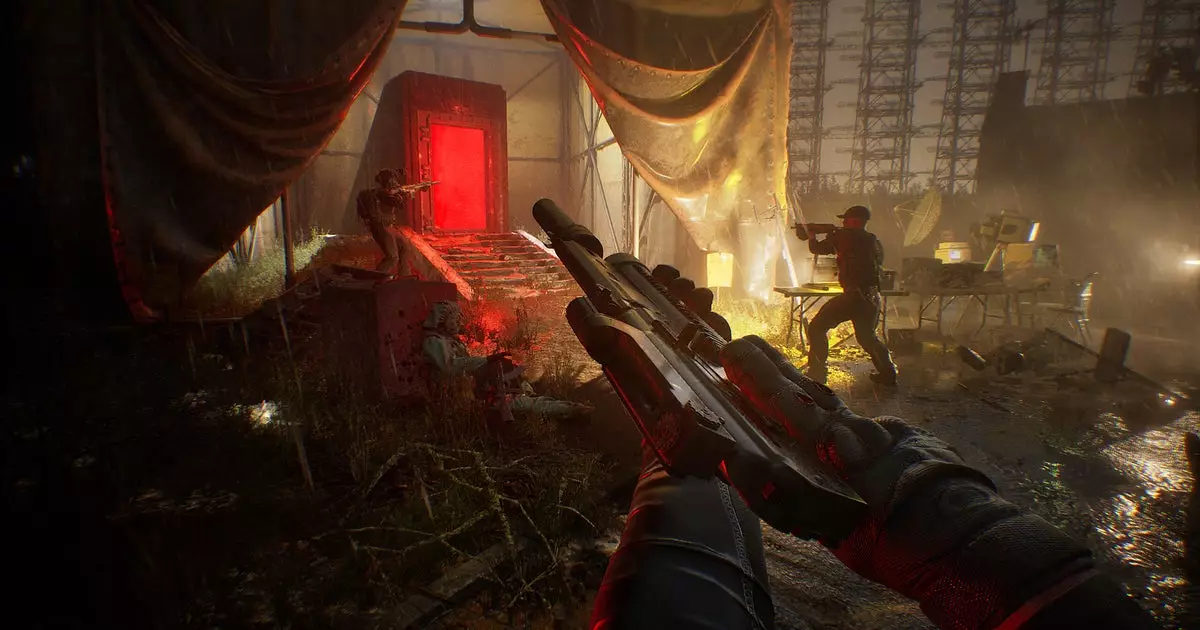The unfolding landscape of video games has witnessed many intriguing concepts; however, the upcoming open-world title, Phantom Line, promises an experience that transcends conventional boundaries. Set against a surreal backdrop characterized by paranormal phenomena, the game unravels a narrative where nuclear warfare pales in comparison to an insidious otherworldly presence. This article delves into the captivating features and lore that make Phantom Line a remarkable candidate for not just entertainment, but an exploration of existential themes and cooperative gameplay mechanics.
Phantom Line establishes its tone by thrusting players into an unsettling reality where their primary adversary is not just enemy combatants but nightmarish entities that strain the limits of imagination. The blend of Lynchian and Tarkovskian aesthetics creates a unique atmosphere reminiscent of psychological horror. Players will confront grotesque manifestations, such as demon puppets lurking amidst an intricate maze of red curtains, raising compelling questions about humanity’s struggle with fear and the unknown.
The foundations of the game are built on tension and unpredictability, making the player’s journey through this haunted world an emotional trial. As players navigate this chilling landscape, they are compelled to confront not only external threats but also the psychological implications of their environment. The thematic depth interwoven with gameplay establishes Phantom Line as not just another shooter; rather, it becomes a narrative vessel questioning what it means to confront the horrifying facets of existence.
One of the most intriguing aspects of Phantom Line is the HUSK system, which allows players to seamlessly switch between squad members during live combat. This feature not only enhances the tactical depth of the game but also introduces variability in player strategies. In a world where every engagement might lead to imminent doom, the ability to maintain fluid control over various characters becomes a tactical advantage.
Each HUSK or artificial body provides distinct capabilities, enabling players to employ different roles in the midst of chaotic battles against soldiers, animals, and existential threats from other dimensions. This layer of strategy allows for diverse playstyles, accommodating both those who prefer brute force and those who lean into stealthy reconnaissance tactics. Moreover, the interplay between player collaboration and AI dynamics is a focal point that could redefine cooperative gaming experiences.
Phantom Line caters to a wide range of play preferences by offering both solo and cooperative gameplay modes. While a solo excursion might thrust players into the fray with more significant emphasis on strategy and resourcefulness, the multiplayer aspect emphasizes teamwork and coordination. Engaging in planning, preparation, and tactical adjustments in response to dynamically generated events enriches the overall gameplay experience.
Players can team up with up to three friends, allowing for an engaging environment where tactics must evolve alongside changing threats. This cooperative framework fosters communication and strategic alliance-building, enabling friends to confront the intimidating lore of the game cohesively. In contrast, solitary adventurers will find the added layer of AI companions serving as decoys and scouts to be a fascinating alternative.
Phantom Line diverges from conventional gameplay by incorporating mechanical elements that echo the Spineless concept: players must not only defend against existential threats but also embrace them. The idea of becoming part of the very horror one fights raises profound questions about morality and survival in desperate scenarios. The narrative invites the player to grapple with the choices between maintaining humanity or succumbing to desperation.
Tomatoes cannot just be appreciated for their flavor; they shape the narrative and gameplay experience. Between missions, players can retreat to their nuclear submarine, where they can customize their artificial bodies, reflecting personal growth or potential corruption. These elements facilitate a connection to the player’s choices while reinforcing the overarching themes of survival, transformation, and existential dread.
In closing, Phantom Line emerges not only as a riveting gaming experience but also as a cerebral exploration of fear, transformation, and the undying spirit of cooperation. By combining standout mechanics, immersive storytelling, and haunting worlds, it captivates those seeking both thrilling gameplay and profound existential reflections. In a realm where nuclear fears dwindle beside the enigma of the paranormal, players will find themselves not just as passive actors, but as entities enmeshed in the fabric of haunting narratives and grave choices.

